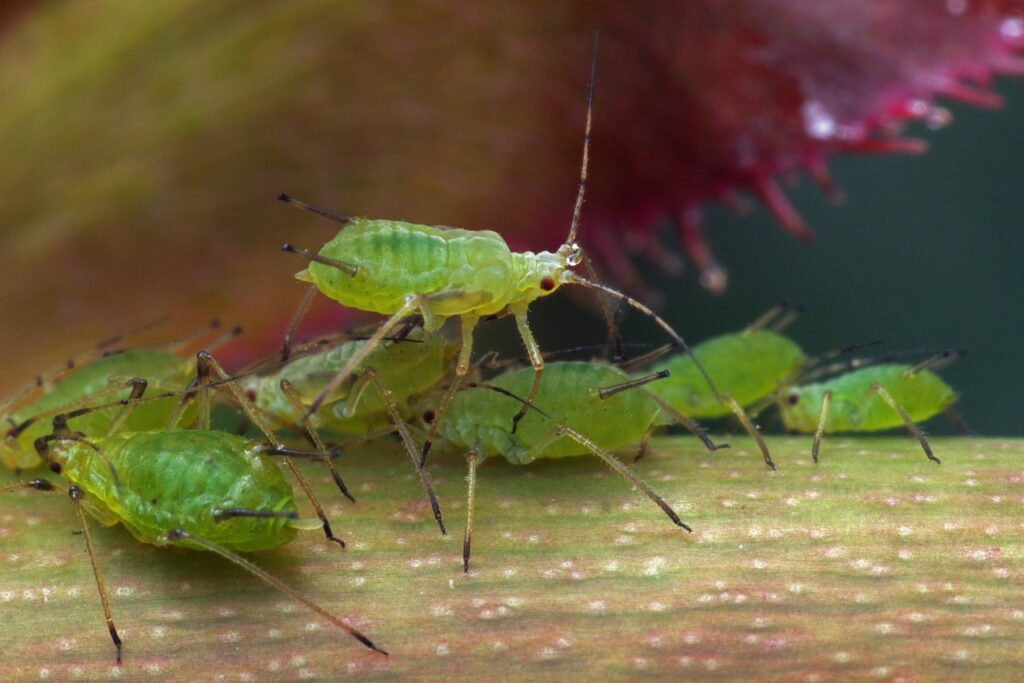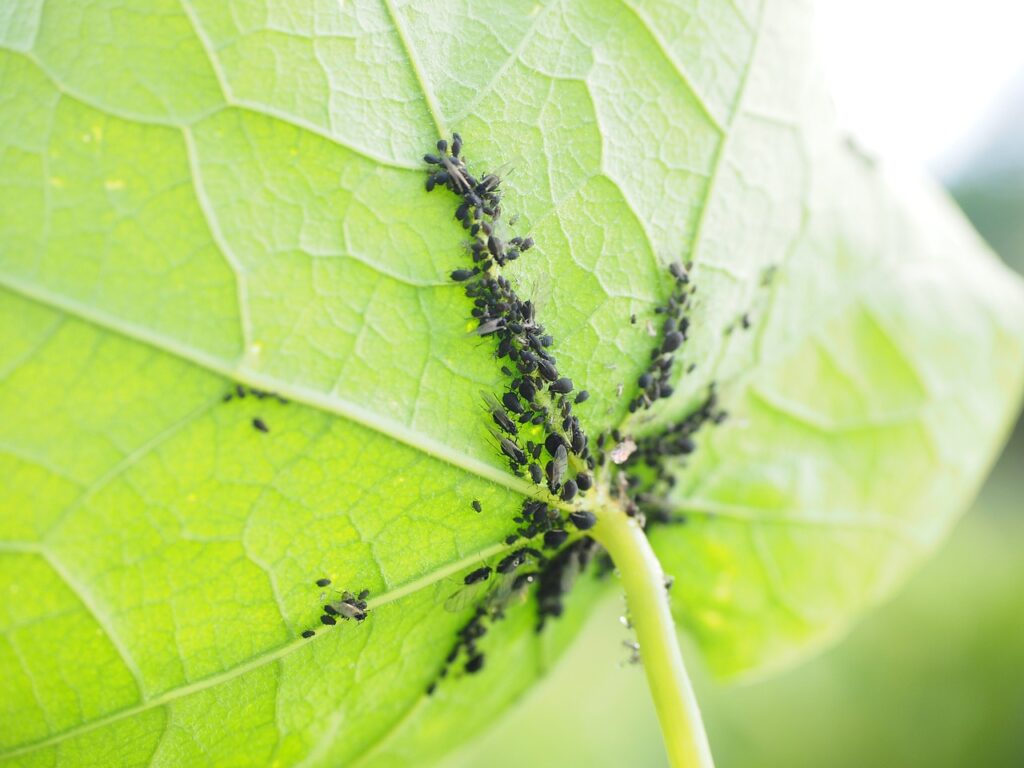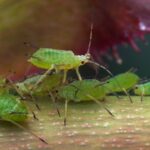We use cookies to make your experience better. To comply with the new e-Privacy directive, we need to ask for your consent to set the cookies. Learn more.
Organic Aphid Control

Organic Aphid Control
Aphids, those tiny, sap-sucking insects, are one of the most common pests gardeners encounter. While they may seem insignificant individually, their ability to reproduce rapidly can lead to severe damage to plants if left unchecked. Understanding these pests and employing organic control methods can help maintain a healthy garden ecosystem without resorting to harmful chemicals.
What Are Aphids?
Aphids belong to the insect family Aphididae and are commonly known as greenflies or blackflies, depending on their colour. These small insects, typically ranging from 1 to 10 millimetres in size, have soft bodies and long antennae. They often gather in colonies on the undersides of leaves or on tender shoots, where they feed on plant sap using their needle-like mouthparts.
A few aphids on a plant isn’t a big deal, natural predators will usually pick these off. However if you are growing a lot of plants close together or indoors you will want to act quickly to keep the population in check.
Identifying Aphid Damage
Detecting aphid infestations early is crucial for effective control. Signs of aphid presence include curled or distorted leaves, yellowing foliage, and the presence of sticky honeydew on leaves and stems. In severe cases, aphid feeding can cause stunted growth and even plant death. Regular inspection of plants, particularly undersides of leaves and tender shoot tips, can help spot aphids before they cause significant damage. Another sign of aphids is the presence of ants, which often "farm" aphids for their honeydew.

What can be done?
There are several organic strategies gardeners can employ to manage aphid populations without resorting to chemical pesticides. Here are some effective methods:
Maintain Plant Health: Healthy, vigorous plants are better equipped to withstand aphid infestations. Provide proper watering, adequate sunlight, and nutrient-rich soil to promote plant resilience. Avoid too much nitrogen-rich fertiliser. This creates the soft leafy growth which aphids love.
Natural Predators: Various wild species depend on aphids as a crucial food source, with predators such as birds, ladybirds, hoverflies, lacewings, and earwigs actively consuming them. Ladybirds, hoverflies, and lacewings deposit eggs on plants infested with aphids, and their offspring consume these pests at a remarkable rate. Encouraging the presence of these natural predators can effectively regulate aphid populations. To attract these helpers, provide them with suitable habitats such as flower beds, native plants, wild areas and insect hotels.
Companion Planting: Planting pungent-smelling plants like sage, onions, garlic alongside susceptible crops can deter aphids with their strong scents. Additionally, certain companion plants attract aphid predators, providing a natural form of pest control. You can also grow ‘decoy’ or ‘trap’ plants like nasturtium or sunflowers, these draw the aphids away from the other plants. Just make sure to maintain a distance from key plants to prevent aphids from spreading.
Monitor with Sticky Traps: Sticky traps have been found to be an effective 'pesticide free' method of controlling aphids. It’s best to set up early in the season. They are used to trap and monitor adult aphids. Regularly inspecting these traps allows for early intervention before infestations escalate.
Manual Removal: For smaller infestations, manually removing aphids with a strong jet of water or by hand picking them off plants can be effective. Be sure to dispose of aphids away from the garden to prevent reinfestation.
Polytunnels: Unfortunately, polytunnels are an ideal environment for aphids. Keeping the tunnel clean and well ventilated is very important. Do not allow plant debris to accumulate. Take action as soon as you see one aphid and monitor the situation with Sticky Traps. Predators are very effective in a polytunnel, especially when applied at the beginning of the season.
Organic Control Products
- Soft Soap - Soap sprays kill aphids by breaking down their cell membrane, essentially drying them out. It only works when sprayed directly on the pests and should be reapplied if infestation persists. Soft soap is regarded as environmentally safe, and is fully biodegradable.
- Herfosec - Herfosec strengthens the plants and makes them less susceptible to attack from aphids.
- Diatomaceous Earth - To aphids, DE is a lethal dust with microscopic sharp edges that cut through their protective covering and dries them out. Diatomaceous earth will not harm the worms or any of the beneficial microorganisms in the soil. Apply with a dust applicator and always wear a dust mask.
- Pyrethrum - A natural insecticide which can be used against aphids. It works on contact killing insects currently on the plant. For this reason it should not be sprayed when plants are in flower or when beneficial insects (such as bees) are active. We recommend spraying in the evening when bees are unlikely to be in or around the plants.
- AMN Biovit - 100% natural herb extract made from Garlic, contains significant amounts of iron, organic Selenium and other important micronutrients. It is absorbed by the plant and changes the chemistry of the foliage. This changes the 'smell' of the plant, and insects which are genetically coded to find their food by scent are no longer attracted to the plant.
Biological Control - We are able to obtain a parasitic wasp which is a natural predator for Aphids. As these predators are living creatures, they need to be sent directly to you from the supplier. Please contact us on 02750710 for more information and availability.

